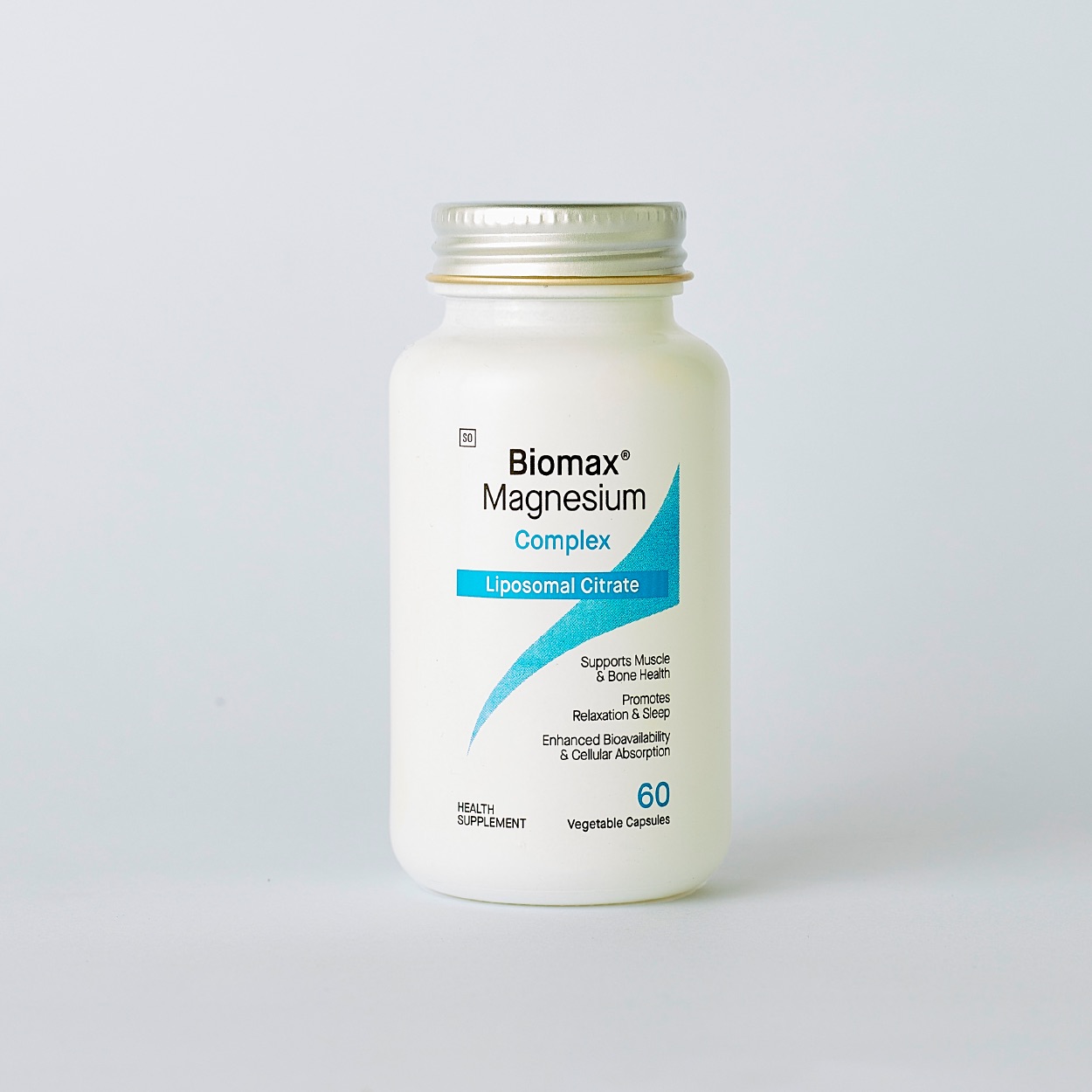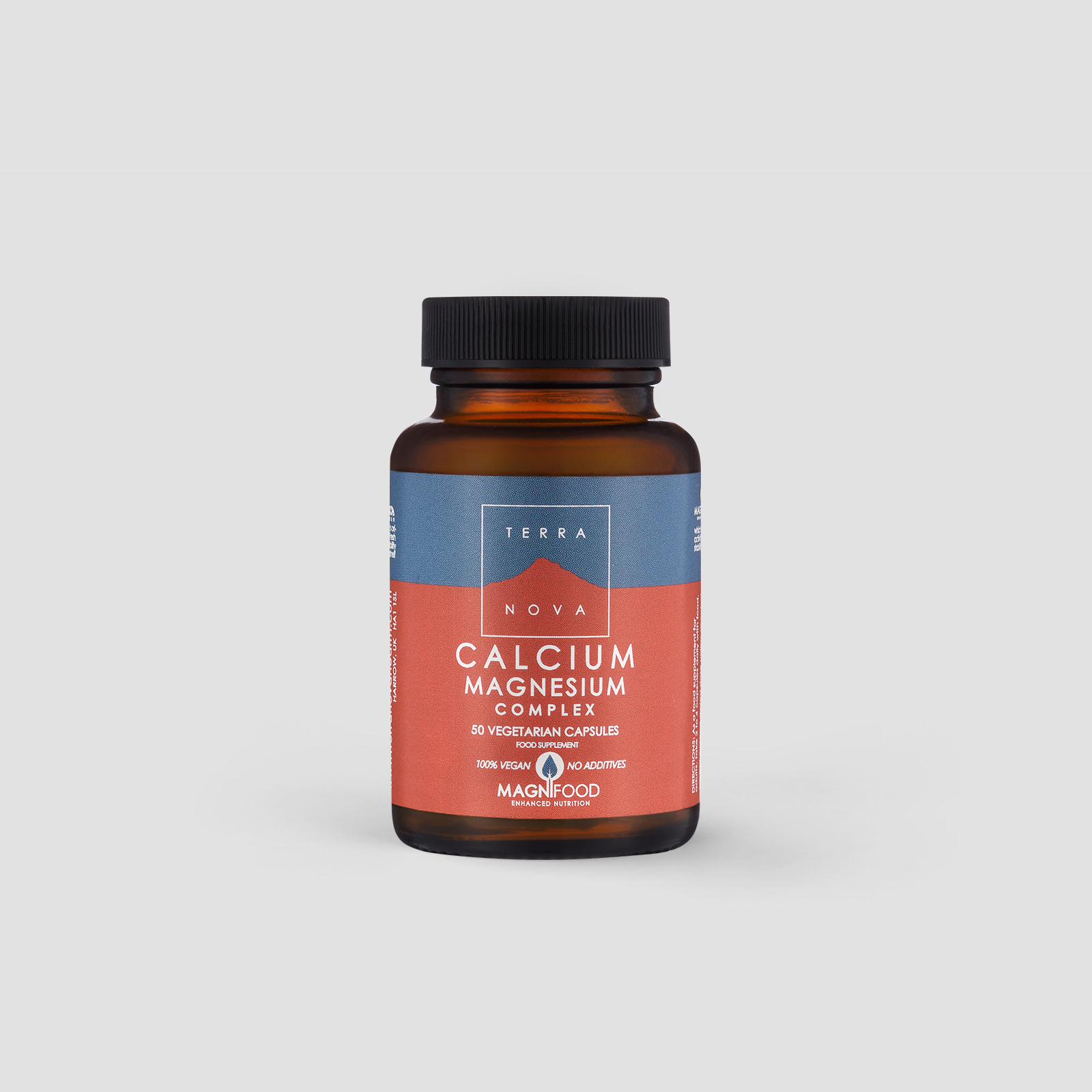Magnesium is an essential mineral that plays a pivotal role in numerous bodily functions, including mood and stress support, blood sugar regulation, and bone health [1].
What Are the Benefits of Magnesium?
Magnesium supplements offer a range of health benefits, particularly for individuals with low dietary intake or specific health conditions. Key advantages include:
- Improved Energy Levels: Magnesium plays a crucial role in energy production by activating ATP, the body’s main energy source, and aiding in the conversion of glucose into energy. Adequate magnesium levels help maintain stable energy levels and prevent fatigue [2].
- Mood Enhancement: Adequate magnesium levels are associated with improved mood and may help alleviate symptoms of stress and anxiety [3].
- Bone Health: Magnesium works synergistically with calcium to strengthen bones, reducing the risk of osteoporosis [10].
- Migraine Prevention: Supplementing with magnesium has been linked to a decrease in the frequency and severity of migraine attacks [11].
- Blood Sugar Regulation: Magnesium helps the body break down sugar and can assist with insulin resistance [4] [8].
- Heart Health: Magnesium supplementation may decrease blood pressure and lower the risk of heart disease and stroke [9].
What Are the Signs of Magnesium Deficiency?
Magnesium deficiency, though often underdiagnosed, can manifest through various symptoms, including:
- Gastrointestinal Disturbances: Early signs of deficiency may include nausea, vomiting or loss of appetite [12].
- Fatigue and Weakness: Low magnesium levels can lead to general fatigue and muscle weakness [12].
- Muscle Cramps and Twitches: Inadequate magnesium may result in muscle cramps, particularly in the legs [12].
- Mood Changes: Deficiency has been linked to mood swings, irritability, and depression [13]
- Osteoporosis: Chronic low magnesium can contribute to decreased bone density [13]
Can You Take Magnesium Every Day?
For most individuals, daily magnesium intake is safe and beneficial. The Recommended Dietary Allowance (RDA) varies by age, sex, and life stage, but generally, adult men are advised to consume 400–420 mg daily, while adult women should aim for 310–320 mg [1].
Obtaining magnesium through a balanced diet is preferable; however, supplements can help bridge the gap when dietary intake is insufficient. It is important to note that excessive magnesium supplementation, particularly beyond 350 mg per day from supplements, can lead to adverse effects like diarrhoea and, in severe cases, heart issues [4]. Therefore, consulting a healthcare provider before starting supplementation is recommended.
Should I Take Magnesium in the Morning or Night?
The timing of magnesium supplementation can influence its effectiveness and tolerability:
- Morning Intake: Some individuals prefer taking magnesium in the morning to support energy production and muscle function throughout the day [6].
- Nighttime Intake: Magnesium plays a role in regulating the chemical messengers in the brain, which can contribute to a calming effect on the body. Magnesium’s calming effects on the nervous system may promote relaxation and reduce muscle tension when taken in the evening [6].
Ultimately, consistency is key. Taking magnesium supplements at the same time daily, with food, can enhance absorption and reduce the likelihood of gastrointestinal discomfort [6].
What Happens to Your Body When You Start Taking Magnesium?
Magnesium supplementation can lead to several physiological changes:
- Enhanced Muscle Relaxation: Magnesium aids in muscle relaxation, potentially reducing cramps and spasms [1].
- Mood and Cognitive Support: Adequate magnesium levels can positively affect mood and cognitive function [3].
- Digestive Regularity: Some forms of magnesium can promote digestion and regular bowel movements [1].
- Supports Bone Health: Magnesium helps convert vitamin D into its active form, which is necessary for calcium absorption in the gut, which contributes to bone health [14].
- Energy Production: Magnesium acts as a cofactor for more than 300 enzymatic reactions in the body, many of which are involved in energy metabolism. For example, it helps enzymes that are critical for the breakdown of carbohydrates, fats, and proteins, leading to the production of energy [14].
- Protein Synthesis: Magnesium plays a crucial role in the process of creating structural components like collagen and elastin, which are key to the formation and repair of tissues, including skin, muscles, and connective tissues [15].
What Food Is Highest in Magnesium?
Incorporating magnesium-rich foods into your diet is an effective way to meet daily requirements. Top sources include:
- Nuts and Seeds: Almonds, cashews, and pumpkin seeds are particularly high in magnesium [5].
- Leafy Green Vegetables: Spinach and Swiss chard offer substantial amounts of magnesium [5].
- Whole Grains: Whole wheat bread and brown rice are good sources [5].
- Legumes: Black beans, lentils, and chickpeas provide significant magnesium content [5].
- Avocados: This fruit is not only rich in healthy fats but also provides a good magnesium boost [5].
Which Magnesium Supplement is Right for Me?
Each type of magnesium provides unique and targeted benefits. Some of the most well-liked magnesium supplements include magnesium citrate, known for its high bioavailability and effectiveness in promoting digestive health and supporting constipation, and magnesium L-threonate, which can enhance cognitive function and mood. Other popular choices include magnesium glycinate, valued for its calming properties and support for relaxation, and magnesium oxide, appreciated for providing a high dose of elemental magnesium and its potential to help relieve migraines [7].
Read our blog on the different types of magnesium and which one might work well for your personal needs.
A well-balanced approach to magnesium consumption can help prevent deficiencies that may lead to fatigue, muscle cramps, mood imbalances, and other health concerns. Since different forms of magnesium offer unique benefits – such as improved bone and teeth health, digestive support, or relaxation – consulting a healthcare practitioner ensures you choose the most effective type and dosage based on your specific health goals and needs.
This unregistered medicine has not been evaluated by the SAHPRA for its quality, safety, or intended use. Please always consult with your healthcare practitioner before starting a new supplement regimen.





